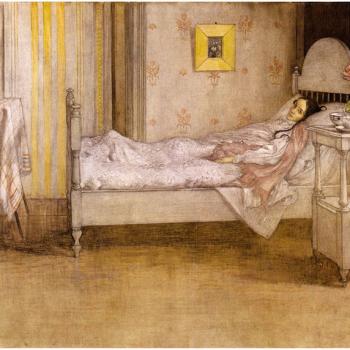Tonight, along with a relatively small minority of my fellow citizens, I'll be glued to the television. Election returns will roll in, and we'll find out whether Nancy Pelosi will remain Speaker of the House, Harry Reid will stay Senate Majority Leader, and whether Obamacare has a ghost of a chance of being repealed. My prediction? The Republicans pick up 61 House seats, eight Senate seats, and Harry Reid goes down to defeat in Nevada.
And, at the end of the night, I'll have witnessed an event that, at best, might be of marginal long-term national importance.
How can I say that? After all, I'm the political junkie's junkie. I can talk for fifteen solid minutes about the virtues of Rasmussen over Gallup and spent my weekend eagerly waiting for NRO's Jim Geraghty to publish his long-promised, massive prediction column where he predicts the outcome of every House and Senate race in the country. Look, I think politics is important, and I will crawl over broken glass and swim a sea of acid (if I must) to vote, but -- really -- it isn't politics that determines our national future. It's the culture.
In 1992, James Carville coined the term, "It's the economy, stupid" to remind Bill Clinton what wins (and loses) elections. And that's largely true in electoral politics, which can be a slave to the business cycle. How many people remember that John McCain and Sarah Palin had actually pulled even with Barack Obama just before the bottom dropped out of the stock market? What would the race have been like had the Dow collapsed in December 2008 rather than September? We'll never know.
I follow politics closely in part because I believe the candidates we select -- and the fights we fight -- are akin to taking a nation's cultural temperature. Our best politicians are leaders, but most are really marketers -- marketing products (themselves, their ideologies) to their fellow citizens. They tell us what most of us want to hear. By watching what they say -- and watching how we react -- we can start to answer some critical questions. What matters to Americans? What kind of people are we? What do we care about?
The answers are disturbing.
We live in an entitlement culture. Very few politicians (and by very few I mean: probably less than five) are seriously grappling with Social Security and Medicare. It has somehow become ingrained in millions upon millions of middle and upper class Americans that the government has a primary role in taking care of them in their old age. For this prosperous dependent class, their own lifetime of earnings is apparently not enough, so we turn the federal government into a glorified union pension fund (with all the financial instability that entails) then punish any politician who takes even baby steps to restore fiscal sanity.
We live in an ignorant culture -- and I'm not just talking about our failing public schools. Our elite universities are failing us also, turning out graduates who are (to borrow Glenn Reynolds' phrase) "credentialed, not educated." In other words, our educated elite -- our ruling class -- often isn't elite at all, but instead their minds and hearts are jammed with fashionable nonsense, including a naïve, Epcot Center view of multiculturalism, hostility, and ignorance toward our own history and culture, and ever-diminishing adherence to orthodox faith.
We live in increasing decadence. And by "decadence" I'm not necessarily referring to the hedonism that's overtaking our youth, but to the selfishness that underlies our spiraling divorce and illegitimacy rates. Our marriage rate diminishes as we want life on our own terms, on our own timing, with children often along for the (very rocky) ride.
We let others fight our wars. In our nation's history no major war has ever been fought with a lower percentage of Americans in uniform than our wars in Iraq and Afghanistan. While not all young people are called to serve, it is distressing how few even consider it. During my year in Iraq, I saw heroism that I could scarcely comprehend, as young soldiers gave everything to protect us and to save the lives of their brothers. Yet the war merely hovers on the edge of our consciousness, and these young men and women have less influence on our youth than Lady Gaga.
I know that I'm painting a grim picture, and I'm not really a "We Are Doomed" conservative. After all, though few Americans serve, more than two million have voluntarily put on the uniform in time of war, and hundreds of thousands have gone back to the fight again and again. We're a still a nation that produces heroes, and history has proven that we can be remarkably resilient.
But the point stands. Culture matters more than politics -- and the fate of the nation rests in the heart and character of its people, not its politicians. Amidst the euphoria of Tuesday, as the expected rout is on or the Democrats show surprising tenacity, someone needs to be whispering in our leaders' ears, Respice post te! Hominem te memento!
11/3/2010 4:00:00 AM





